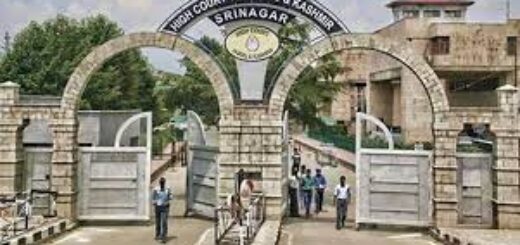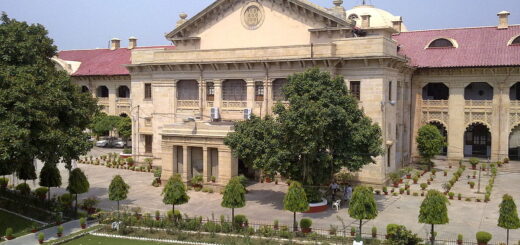The court should not use its authority to enforce the recommendations of the collegium, according to former Chief Justice Chandrachud.

In a recent interview, Dr. D.Y. Chandrachud, the former Chief Justice of India, expressed that the judiciary should avoid handling the matter of Judge appointments on the judicial side. He warned against using judicial authority to push through Collegium recommendations. Justice Chandrachud also supported the Prime Minister’s visit to his residence for prayers, explaining that interactions between the executive and judiciary, whether social or formal, are common. He noted that many stakeholders are involved in Judge appointments, emphasizing that in a federal system, the process is more complex than in a unitary system.
He shared his “strong reservations” about addressing appointments through the judiciary, explaining that the Supreme Court is just one of the key players in the appointment process. He stated, “If we use our judicial power to ensure that our recommendations are followed, we would be misusing that power to enforce our Constitutional suggestions from the collegium, which I have concerns about.” He suggested fostering “robust dialogue” between the government and judiciary, stressing the importance of understanding any government concerns regarding a Judge’s appointment. Justice Chandrachud remarked that sometimes these concerns are valid, while at other times they may not be, noting that there have been instances where the Collegium found the government’s objections to be unfounded and reiterated their recommendations.
The former Chief Justice emphasized the need for strong communication between the government and the judiciary. He noted that if the government has concerns about an appointment, the judiciary should be aware of those concerns. “Sometimes these concerns are valid, and sometimes they are not. We have seen examples of both. When we find concerns to be unfounded, we have repeated our recommendations. It’s also crucial to recognize that in the Collegium System, both the government and the judiciary have a say. A judge deemed unsuitable by the Collegium cannot be appointed. This illustrates the system of checks and balances,” Justice Chandrachud stated in an interview with CNN-News 18.
The discussion about the relationship between the executive and the judiciary, as well as the separation of powers, arose when Justice Chandrachud was asked if only atheist judges could be impartial and whether judges are biased based on their religion. He responded, “A judge does not need to be an atheist to be impartial.” Judges are also citizens and have the same rights as everyone else. “Being human helps us understand the issues faced by others.” He firmly believed that “a judge’s personal beliefs do not influence their decisions,” as judges are trained to rule based on the law and the Constitution.
Justice Chandrachud stated that if we accept the idea that only an atheist judge can be truly impartial, this reasoning could extend to various aspects like region, culture, language, and gender. He questioned the interviewer, asking, “Why limit this to religion? Can we claim that only a female judge can fairly handle cases involving women? Clearly not. Can we assert that only a judge with a specific sexual orientation can fairly judge cases related to sexuality? Again, clearly not. Judges are trained to approach cases with a diverse perspective.” Regarding the controversy over his admission of praying before delivering the Ayodhya judgment, he emphasized that he is not “hypocritical enough to hide that I am a man of faith, and I believe my faith does not affect my ability to deliver justice.”
When asked about the invitation to Prime Minister Narendra Modi for Ganpati prayers and its appropriateness concerning the separation of the executive and judiciary, Chandrachud explained that there has always been communication between these two branches. For example, Chief Ministers and Chief Justices often meet for various reasons, whether discussing High Court infrastructure or attending social events. “Our system shows political maturity, ensuring that such dialogues do not interfere with our judicial responsibilities.” He also mentioned that as Chief Justice of India, he frequently met with the Minister of Law and Justice to ensure that the Collegium’s recommendations were implemented. “This kind of dialogue does not undermine judicial independence; it is crucial for the efficient functioning of the State and governance.” During the Prime Minister’s visit to his official residence, he remarked, “Prime Ministers often visit Judges’ homes for different reasons. These can be social events, some joyful, others more challenging.” Justice Chandrachud argued, “Can you identify even one case where a discussion between the judiciary and the executive changed the result? Clearly not.” He added, “I think no one can point to a single case, before or after that visit, where it could even be hinted that the visit influenced the case’s outcome.”









